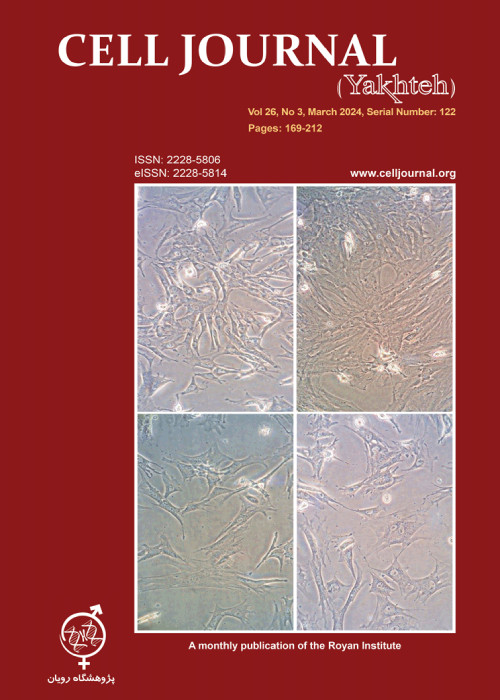A Novel In Vitro Model for Cancer Stem Cell Culture Using Ectopically Expressed Piwil2 Stable Cell Line
Author(s):
Abstract:
Objective
Piwil2, a member of Ago/Piwi gene family containing Piwi and PAZ domains, has been shown to be ectopically expressed in different cancer cells, especially its remarkable expression in cancer stem cells (CSCs), and is also known to be essential for germ line stem cell self-renewal in various organisms. The hypothesis that CSC may hold the key to the central problem of clinical oncology and tumor relapse leads to more anticancer treatment studies. Due to emerging controversies and extreme difficulties in studying of CSC, like the cells using in vivo models, more attempts have expended to establish different in vitro models. However, the progress was slow owing to the problems associated with establishing proper CSC cultures in vitro. To overcome these difficulties, we prompted to establish a novel stable cell line over-expressing Piwil2 to develop a potential proper in vitro CSC model. Materials And Methods
In this experimental study, mouse embryonic fibroblasts (MEFs) were isolated and electroporated with a construct containing Piwil2 cDNA under the control of the cytomegalovirus promoter (CMV). Stable transfectants were selected, and the established MEF-Piwil2 cell line was characterized and designated as CSC-like cells using molecular markers. Functional assays, including proliferation, migration, and invasion assays were performed using characterized CSC like cells in serum-free medium. Additionally, MEF-Piwil2 cell density and viability were measured by direct and indirect methods in normoxic and hypoxic conditions. Results
The results of reverse transcriptase-polymerase chain reaction (RT-PCR), western blot, and immunocytochemistry revealed an overexpression for Piwil2 in the transfected Piwil2 cells both in the RNA and protein levels. Furthermore, analysis of the kinetic and stoichiometric parameters demonstrated that the specific growth rate and the yield of lactate per glucose were significantly higher in the MEF-Piwil2 group compared to the MEF cells (ANOVA, p<0.05). Also, analysis of functional assays including migration and invasion assays demonstrated a significantly higher number of migrated and invaded cells in the MEF-Piwil2 compared to that of the MEF cells (ANOVA, p<0.05). The MEF-Piwil2 cells tolerated hypoxia mimetic conditions (CoCl2) with more than 95% viability. Conclusion
According to the molecular and functional studies, it has been realized that Piwil2 plays a key role(s) in tumor initiation, progression and metastasis. Therefore, Piwil2 can be used not only as a common biomarker for tumor, but also as a target for the development of new anticancer drug. Finally, the main outcome of our study was the establishment of a novel CSC-like in vitro model which is expected to be utilized in understanding the complex roles played by CSC in tumor maintenance, metastasis, therapy resistance or cancer relapse.Language:
English
Published:
Cell Journal (Yakhteh), Volume:15 Issue: 3, Autumn 2013
Pages:
250 to 257
magiran.com/p1160472
دانلود و مطالعه متن این مقاله با یکی از روشهای زیر امکان پذیر است:
اشتراک شخصی
با عضویت و پرداخت آنلاین حق اشتراک یکساله به مبلغ 1,390,000ريال میتوانید 70 عنوان مطلب دانلود کنید!
اشتراک سازمانی
به کتابخانه دانشگاه یا محل کار خود پیشنهاد کنید تا اشتراک سازمانی این پایگاه را برای دسترسی نامحدود همه کاربران به متن مطالب تهیه نمایند!
توجه!
- حق عضویت دریافتی صرف حمایت از نشریات عضو و نگهداری، تکمیل و توسعه مگیران میشود.
- پرداخت حق اشتراک و دانلود مقالات اجازه بازنشر آن در سایر رسانههای چاپی و دیجیتال را به کاربر نمیدهد.
In order to view content subscription is required
Personal subscription
Subscribe magiran.com for 70 € euros via PayPal and download 70 articles during a year.
Organization subscription
Please contact us to subscribe your university or library for unlimited access!


